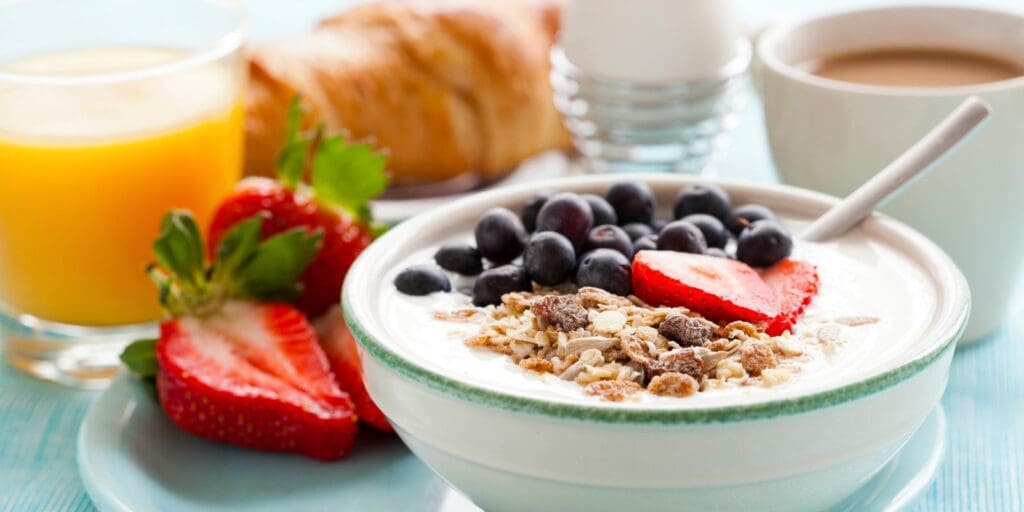Ageing well doesn’t hinge on sweeping lifestyle changes or complicated wellness routines. Often, it’s the simple, consistent habits done every day that support long-term vitality. These small choices influence how the body functions at the cellular level, shaping how you feel and age well. Focusing on gentle, sustainable routines creates real change, supporting better health without overhauling your entire lifestyle.
Everyday Habits That Boost Longevity
Daily routines like drinking water and getting enough rest do more than maintain comfort. They activate internal repair systems and influence how your genes express themselves. These habits may seem minor, but they create a supportive environment for healthy ageing over time.
Consistent, manageable changes are more effective than sporadic bursts of effort. Studies show that steady actions bring better results for biological ageing than occasional extremes. These repeated behaviours send positive signals to your body, keeping repair and defence systems working efficiently over time.
Additionally, many are turning to personalised health insights to optimise ageing strategies. Platforms like Muhdo Hub offer DNA-based wellness recommendations that guide small, targeted habits supporting biological age management.
Building a Morning Routine for Cellular Health
Your morning routine sets the tone for your body’s cellular function throughout the day. Rehydrating on waking helps restore fluid balance and supports normal bodily processes. NHS advice encourages this simple step, not because it supercharges metabolism but because it aids core functions.
For adults over 40, incorporating protein at breakfast, such as eggs or yoghurt, helps maintain muscle mass and supports metabolism. Consulting NHS dietary guidance or a nutrition professional ensures intake aligns with individual needs, especially as they shift with age.
A gentle movement, like a short stretch or a quick walk, can also prime the body for the day. This activates pathways linked to DNA repair and supports healthy stress responses.
Everyone’s morning routine looks different. Whether you eat early or wait a bit, the key is listening to your body and choosing consistent habits that fit your lifestyle and wellbeing goals.
Supporting Healthy Ageing with Food Choices
Inflammation is a key driver of age-related decline. Focusing on anti-inflammatory foods such as oily fish, berries, and magnesium-rich options helps reduce this risk. These foods assist in cellular repair and resilience.
Adding antioxidants through colourful plant-based foods supports your cells in coping with daily stress. Even small increases in fruit and vegetable intake done regularly can lead to meaningful improvements.
Make simple swaps part of your diet. Use olive oil instead of processed oils or choose wholegrains over white bread. These changes help regulate blood sugar and inflammation without demanding drastic alterations to your eating habits.
Nutrient shortfalls are common. Key vitamins and minerals such as vitamin D, magnesium, selenium, and omega-3 fatty acids play a role in cell function. If advised, meeting these needs through diet or supplementing helps support healthy biological ageing.
Restorative Sleep and Evening Habits
Good sleep is essential for cell repair. A consistent sleep schedule helps your body maintain natural rhythms and optimises overnight recovery.
The bedroom environment also plays a role. A cooler room around 16 to 18°C, combined with warm feet, promotes better sleep. Avoid screens and use dim, warm lighting in the evening to signal to your body it’s time to wind down.
Deep sleep helps clear waste from the brain and repair DNA, so making rest a priority each night supports better ageing outcomes.
Breathwork and Stress Resilience
Short breathing exercises help reduce stress and rebalance the nervous system. Techniques with equal-length inhales and exhales activate calming responses that support mental clarity and emotional balance.
Pair breathing with daily cues like waiting for the kettle to turn on, and make these into automatic habits. Doing this regularly helps the body and mind build resilience over time, essential in healthy ageing.
Building a Sustainable Wellness Routine
Healthy ageing doesn’t require dramatic changes. By focusing on small daily habits that nourish your body and mind, you create a robust foundation for long-term vitality. Simple actions done consistently can influence your biological age more than the date on your birth certificate ever will.

